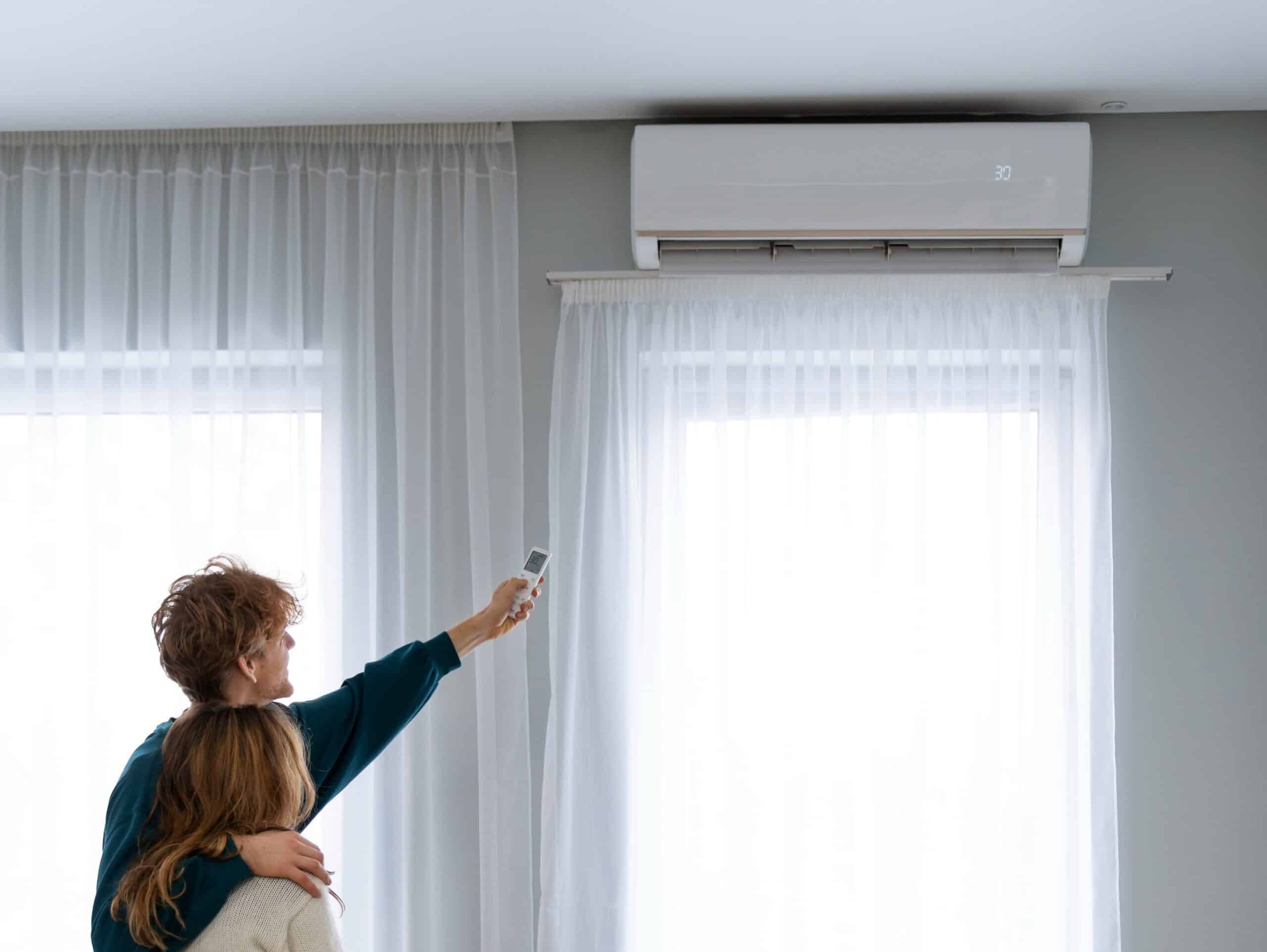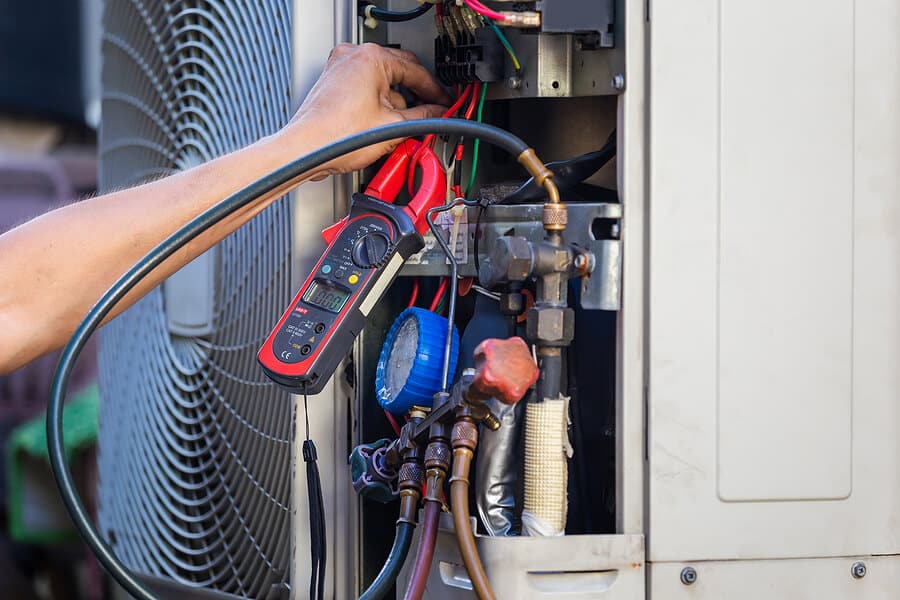Flexible System Upgrades with DMAKS HVAC Expertise.
Flexible System Upgrades with DMAKS HVAC Expertise.
Blog Article
How to Select the Right Cooling And Heating System for Your Needs
Selecting the suitable HVAC system is an important choice that requires careful consideration of various variables. The myriad of system types available can complicate this process, leading one to wonder which course ultimately leads to optimum convenience and efficiency.
Evaluate Your Home Size
Assessing your home dimension is a critical initial step in picking the appropriate cooling and heating system. The size of your home straight affects the heating & cooling capacity needed for reliable climate control. An a/c system that is also tiny will certainly struggle to preserve comfortable temperatures, resulting in increased power intake and endure the device. Alternatively, an oversized system can cause short biking, poor humidity control, and ineffective operation.
To properly evaluate your home dimension, measure the square video footage of each space, thinking about variables such as ceiling elevation and the format. In addition, consider the insulation top quality and the variety of windows, as these elements impact thermal performance. Homes with open layout may require different system setups compared to those with numerous divided spaces.
Utilizing the Guidebook J lots calculation approach can supply a much more accurate quote of your heating and cooling needs. This technique represent various aspects, consisting of regional environment, solar gain, and occupancy patterns. By carefully assessing these elements, you can make certain that your chosen cooling and heating system is suitably sized, causing enhanced convenience, energy efficiency, and longevity of the equipment.
Determine Your Budget Plan
Identifying your spending plan is a pivotal step in the cooling and heating system option procedure, as it establishes the parameters for your alternatives - DMAKS HVAC. A heating and cooling system is a substantial financial investment, and recognizing your financial restrictions will aid limit selections that fit within your methods
Begin by evaluating not just the preliminary acquisition cost yet likewise installation prices, which can differ considerably depending on the complexity of the job. Moreover, think about continuous expenses such as maintenance, repair services, and power intake. A system might appear economical originally however can result in greater costs in time if it is less efficient.
It is recommended to designate a backup fund for unanticipated costs that might occur throughout installment or initial system adjustments (DMAKS HVAC). Furthermore, check out funding options or discounts that may be readily available, as these can relieve the concern of in advance costs
Eventually, having a clear spending plan permits you to engage with a/c experts a lot more properly, ensuring you get customized advice that lines up with your financial goals and home needs. By being diligent about your spending plan, you can make enlightened choices that enhance convenience without compromising economic security.
Evaluate Power Performance
Power performance plays a vital role in the general efficiency and cost-effectiveness of your HVAC system. When choosing a system, it is necessary to consider its power efficiency ratings, as these figures directly affect your energy expenses and environmental impact. Search for systems with a high Seasonal Energy Effectiveness Proportion (SEER) for cooling and a high Yearly Gas Usage Performance (AFUE) rating for home heating. Higher ratings suggest greater effectiveness, indicating more comfort for much less power usage.
Additionally, take into consideration the Power Celebrity accreditation, which represents that the system satisfies stringent effectiveness standards established by the Environmental Security Firm. Buying a Power Star-rated HVAC system can cause significant cost savings gradually, particularly in locations with severe temperature level fluctuations.
An additional factor to evaluate is the system's size and capacity. An oversized or small device can bring about inefficiency and boosted power prices. DMAKS HVAC. Appropriate sizing, usually determined via a Manual J tons estimation, makes sure that the system operates at optimum effectiveness


Consider Climate and Setting
When choosing a cooling and heating system, it is important to think about the neighborhood climate and environmental conditions, as these elements significantly influence the system's efficiency and efficiency. Different regions experience differing temperature extremes, humidity levels, and seasonal adjustments, all of which impact heating and cooling needs.

Additionally, neighborhood environmental elements, such as air high navigate to this site quality and prospective irritants, ought to educate your choice. Systems furnished with innovative purification modern technologies can assist minimize toxins and supply cleaner air. Additionally, take into consideration the power resources available in your area-- some a/c systems are much more reliable when powered by gas or sustainable power sources.
Eventually, straightening your HVAC system option with your local environment and environmental factors to consider will certainly cause boosted convenience, boosted performance, and reduced link energy costs.
Explore System Types and Features
As house owners look for to optimize comfort and efficiency, checking out the numerous kinds of HVAC systems and their distinct functions comes to be essential. The main kinds of a/c systems include central air, heat pumps, ductless mini-split systems, and furnaces. Each system provides unique benefits customized to different requirements and preferences.
Central air conditioning systems offer consistent cooling throughout a home, making them excellent for larger areas. Heatpump serve as both heating and cooling solutions, making use of electrical energy to transfer warmth, which can cause reduced power costs. Ductless mini-split systems are ending up being progressively prominent because of their adaptability and simplicity of installment, permitting property owners to regulate the temperature level in individual areas without comprehensive ductwork.

Final Thought
Finally, choosing the proper a/c system demands mindful Recommended Reading consideration of different elements, consisting of home size, budget plan restrictions, power effectiveness, regional climate, and available system kinds. An extensive analysis of these aspects makes certain optimal comfort and cost-effectiveness. By following an organized approach, home owners can make enlightened choices that line up with their particular needs and choices, inevitably leading to enhanced indoor air top quality and power savings.
Report this page